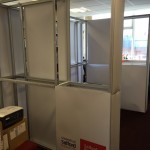
The Pop-up Research Unit (PUPRU) is a bespoke robust mobile display space intended for regular ad-hoc installation. It can pop-up in a range of public spaces including the high street, inside shopping malls, in the foyer of business premises, and at education institutions (primary schools, high schools, universities etc.)
The digital revolution has significantly impacted business. The Unit provides Salford Business School and particularly members of the Centre for Digital Business with a creative platform to support research projects. Some of the research areas could be 4G Retailing, Digital Marketing and Digital High Street, with a focus on business exploitation, implementation and integration of a range of digital technologies, tools and methods.
What digital technologies could you expect to see in our PUPRU?
There are a number of things you can see and engage with in our PUPRU:
Just testing out the @DBCentreSalford popup research hub for #CreativeEnt #PUPRU #passion4digital @seniorenrico pic.twitter.com/DwI4QPCf5x
— Dr. Alex Fenton (@alexfenton) November 6, 2015
- 3D scanners
- 3D printers
- Beacons
- Camera
- Tablets
- Raspberry Pi
Through these technologies, the Unit will enable the data capture in relation to, for example, social media, digital marketing, retailing practice, personal digital footprint and e-supply chain, and keep pace with consumers in terms of:
- Big data and personalisation: e.g. tracking digital interactions and use data about people, their preferences and behaviours to better meet customer’s needs.
- In-store experiences: e.g. sending personalised notification to each shopper’s mobile through beacon technologies
- New marketing technologies: e.g. using 3D scanner and 3D printer to produce rapid and unique prototypes.
What are the key technologies in PUPRU?
@gordonfletcher asking questions we can't answer about the #PUPRC ? pic.twitter.com/ekl2MXJwLb
— marie griffiths (@mformarie) November 2, 2015
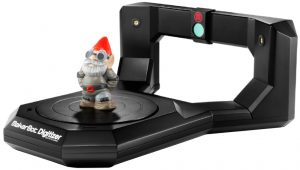
Fuel3D Scanify, a portable handheld 3D scanner that scans high resolution images for 3D printing, 3D art, and game development. It can scan high texture surfaces, the human form, plants and animals, and virtually any object.
MakerBot Digitizer 3D Scanner, a desktop 3D scanner. As the market continues to get more crowded, MakerBot has improved its Digitalize 3D scanner to make 3D printing more accessible and simple to use in terms of the way of calibration and usage of software, which makes it easy for the user to choose settings for the scan.
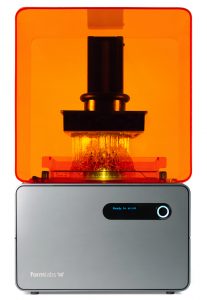
Formlab Form 1+ 3D Printer, a complete end-to-end system that allows users to 3D print from the convenience of their desktop. It starts with PreForm, a software package designed to prepare any .STL or .OBJ for printing. Once a file has been prepared for 3D printing, a specific resin type (either Standard or Functional) need to be selected for the print. After a part has been printed, it will be coated with excess liquid resin. Users remove models from the build platform and then wash parts in isopropyl alcohol (90% or above) for 20 minutes. Once the part is dried, users can easily remove the part using the flush cutters and the print is ready for final use.
Estimate Beacons, small sensors which can stick anywhere to provide context and micro-location to any smart devices.

Raspberry Pi, a low cost, credit-card sized computer that plugs into a computer monitor or TV, and uses a standard keyboard and mouse. It is a capable little device that enables people of all ages to explore computing, and to learn how to program in languages. It’s capable of doing everything you’d expect a desktop computer to do, from browsing the internet and playing high-definition video, to making spreadsheets, word-processing, and playing games.
What do we plan to experiment with PUPRU?
first taste of 3D printing..sticky…? #PUPRU @mformarie @mariakutar pic.twitter.com/g3v1cevJPL
— Yun Chen (@yunisooc) November 12, 2015
Most people use open source platforms like Thingivers to download designs to 3D print. It’s free, easy, and there’s an infinite amount of models to print for demo and fun. E.g. the butterfly clip.To move forward with the technology, however, 3D scanners open up new opportunities in 3D printing, because instead of having to search for something you want on an online marketplace, you can find whatever you want, or part of what you want, and scan it.
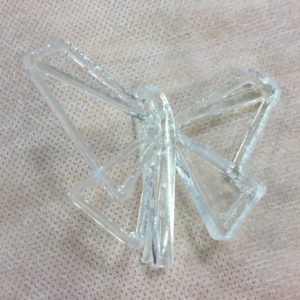
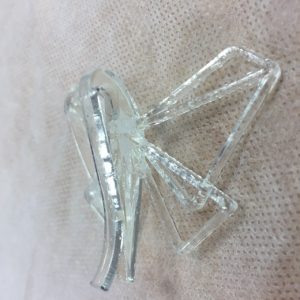
Besides the usage in industry and business, 3D scanning and printing techniques are also good for educational purpose, from primary school to universities – teachers and students can combine engineering, math, design process and history etc. together for lessons inside and outside of the classroom.
- Beacons and Smart Devices (phone/tablets)
In high street, if customers pick up something they are interested, it can be detected by beacons to provide similar products information. Then, at the end of the day, the business owner can find what the most popular products are and make promotions and sale, or judgement to the store layout.
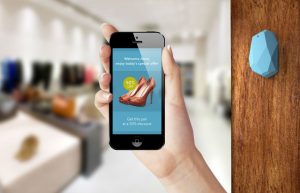
More to come…
Follow the developments of #PUPRU on twitter
First build of @salfordbizsch of #PUPRC research centre pic.twitter.com/iB1zeUzVDc
— marie griffiths (@mformarie) November 2, 2015